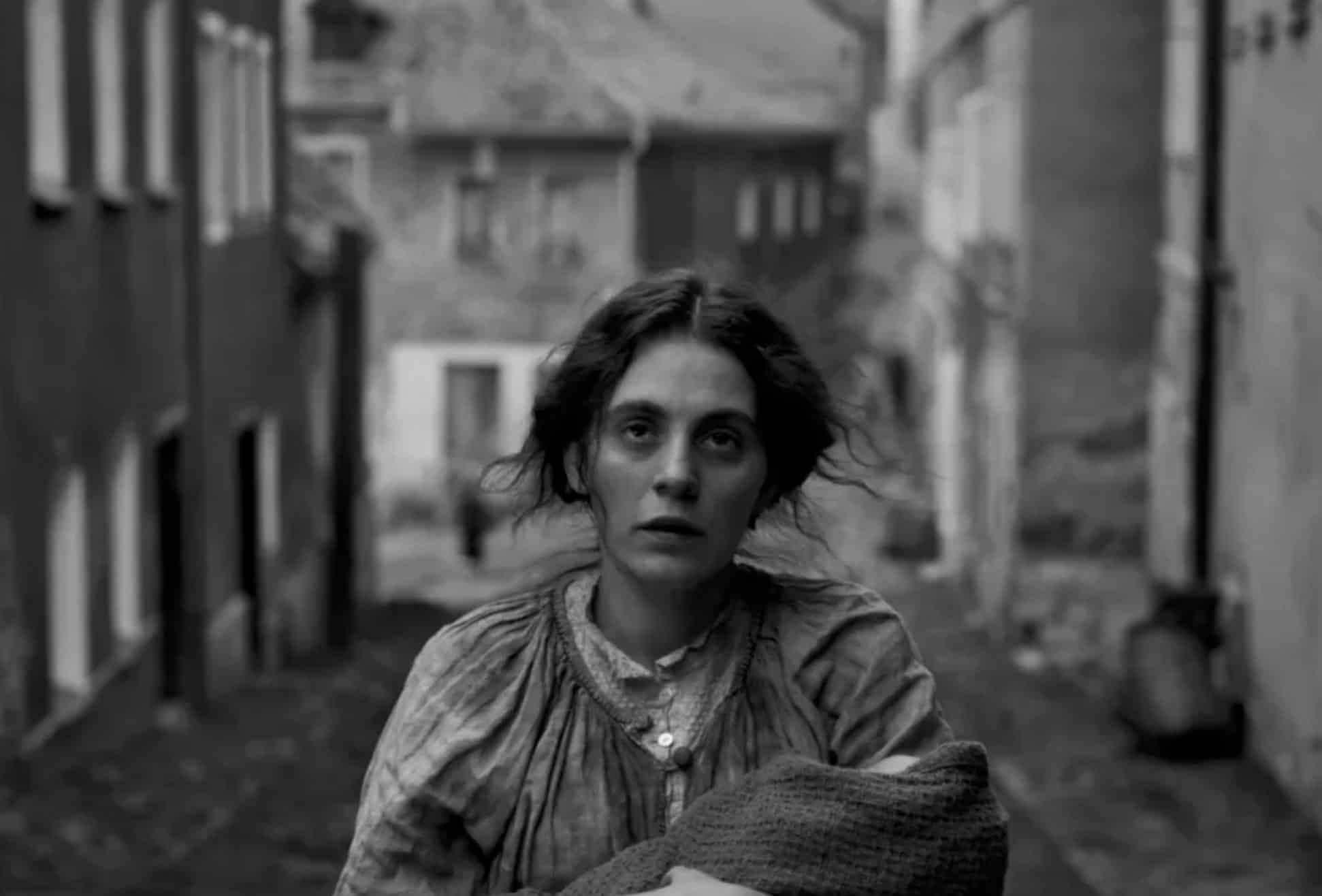
Billed as “a fairytale about a horrible truth”, the third film from director Magnus von Horn (Sweat, The Here After) is a sumptuously shot period drama that tells a chilling true story. Playing in Competition at the 2024 Cannes Film Festival, it’s a powerful and macabre tale that confirms von Horn as a major talent.
Set in post-WWI Copenhagen, the film centres on working class Karoline (Vic Carmen Sonne), a factory worker who catches the eye of her attractive young boss, Jorgen (Joachim Fjelstrup) and falls pregnant by him, only to be cast aside when his wealthy mother, a Baroness, threatens to disinherit him if their planned marriage goes ahead. After attempting to abort her baby in a local bath house (the act that gives the film its title), Karoline forms a connection with Dagmar Overbye (Trine Dyrholm), a charismatic older woman who runs a clandestine adoption agency out of a sweet shop.
When Karoline gives up her baby, Dagmar offers her employment as a wet-nurse for the agency, providing milk to the newborns awaiting foster homes. However, it soon becomes clear that all is not as it first appears, and Dagmar is hiding a sinister secret.
Stylistically, von Horn sets out his stall early, beginning with a remarkable black and white opening shot that involves filmed images of a female face being projected onto another face, the edges blurring and overlapping. The effect is simultaneously deeply unsettling and strangely beautiful, neatly capturing the overall tone of the film in a single shot.
The script—co-written by von Horn and Line Langebek—moves at a swift pace, taking Karoline on a heart-breaking journey, in which her hopes for a better life are repeatedly dashed. As a result, there’s a pervasive bleakness to the film that is quietly devastating—as Dagmar puts it, “The world is a terrible place and we have to pretend that it isn’t.”
The performances are exceptional. Sonne delivers an utterly compelling turn as Karoline, conveying a wealth of emotion with just a flicker of a change in facial expression, particularly in her scene with the Baroness.
Similarly, Dyrholm, who’s practically a national treasure in Denmark, is on characteristically brilliant form as Dagmar, with a multi-layered portrayal that finds a measure of sympathy and understanding for a character that easily have been straightforwardly demonised elsewhere. She also creates a touching bond with Sonne’s character that’s consistently fascinating.
In addition, there’s strong support from Besir Ziciri as Peter, Karoline’s first husband, who returns home from the war with a horrific disfigurement, after having been given up for lost. His ensuing subplot is unexpectedly moving, with von Horn displaying a keen eye for the grotesque, laced with amusingly grisly detail, most notably in a superbly staged reunion scene that will have audiences wincing and sighing simultaneously.
For more Cannes 2024 coverage, click here.





